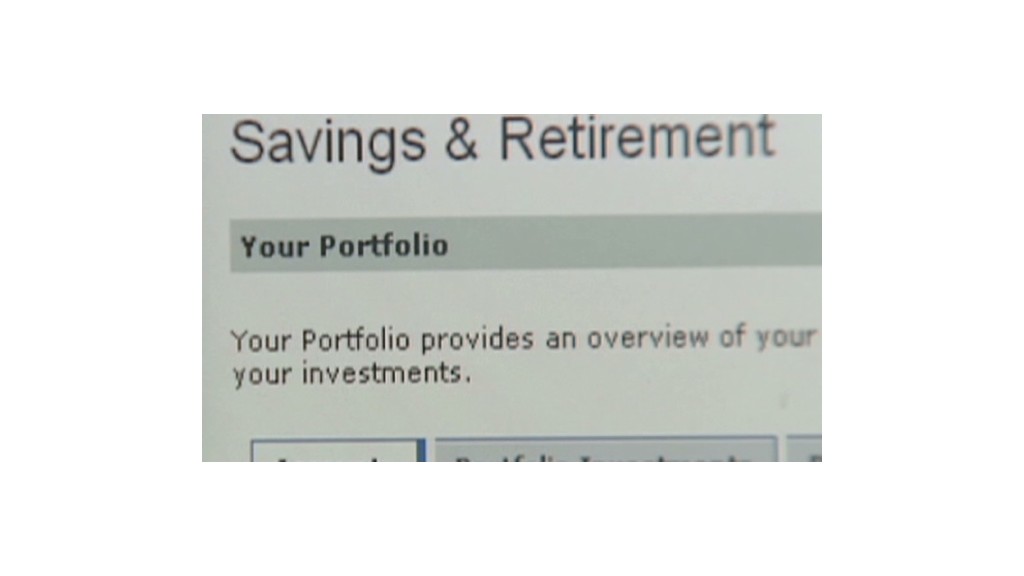My wife and I are 30 years old. We contribute the max to our 401(k)s, but our income disqualifies us from contributing to Roth IRAs. What else can we do to save for retirement? -- David, Fort Smith, Ark.
If you have the cash, it's always a good idea to sock away as much as you possibly can in tax-advantaged accounts for retirement. But it makes even more sense now, particularly if you have a high income.
Why? Well, with President Obama and many members of Congress intent on raising tax revenue, some benefits consultants believe high earners could get squeezed on the tax breaks they get from pension and retirement accounts.
Whether that will actually happen and how is anyone's guess at this point. But to be on the safe side, I recommend you fund tax-advantaged accounts with as much as you can.
Since you and your wife are already plowing the max into your 401(k)s, the next place to start is by getting as much as possible -- up to $5,000 in 2012, $5,500 in 2013, plus an additional $1,000 for people 50 and older -- into a Roth IRA.
I know you think your income bars you from making annual contributions to a Roth. But even if that's the case -- you can check here to find out -- there's a nifty little maneuver known as a "backdoor Roth IRA" that can get you around that hurdle.
Related: Investing in uncertain times
You simply contribute to a nondeductible IRA -- which anyone under age 70 ½ with earned income can do -- and then convert the nondeductible IRA into a Roth IRA. Voila! You've legally skirted the government's pesky little regulations.
Since you fund a nondeductible IRA with after-tax dollars, you would owe no tax on the conversion, unless your nondeductible IRA accrues investment gains between the time you open and convert it. In that case, you would owe tax on the gains.

This move gets trickier, however, if you already have other non-Roth IRAs, say, a traditional deductible IRA or a rollover IRA you funded with money from a former 401(k). That's because when you convert a nondeductible IRA to a Roth, you must also take into account any pre-tax contributions and gains in all non-Roth IRAs that you own.
So, for example, if you already have IRAs that have a combined pre-tax balance of $44,000 and you contribute $5,000 to a nondeductible IRA that racks up $1,000 in investment gains before you convert it to a Roth, 90% of the conversion would be taxable (your $44,000 pretax balance, plus the $1,000 in gains in your nondeductible IRA divided by your $50,000 total IRA balance). Thus you would owe tax on $5,400 (90% of your $6,000 nondeductible IRA balance).
Keep in mind that the taxable amount of a conversion gets added to your other taxable income, which means doing a conversion could push you into a higher tax bracket.
If you already have non-Roth IRAs, there are two other moves you might want to consider in order to get money into a Roth. One is to roll your existing IRA balances into your current 401(k), assuming your plan accepts rollover money, as most do. Since you would no longer have non-Roth IRAs after rolling them into your 401(k), you could convert the nondeductible IRA without having to pay tax, except on any investment gains in your nondeductible IRA.
The second move is a bit more complicated, but boils down to this: Instead of opening a nondeductible IRA and then converting it, take the money you would have put into the nondeductible IRA, plus any tax you would have paid to convert it, and use that money instead to convert as much of your existing IRAs as possible. This tactic will allow you to get more money into a Roth IRA. (Read more about how this maneuver works and its potential benefits.)
Related: 'Should I convert my IRA into a Roth?'
If you and your wife want to stash away even more for retirement after funding a Roth IRA, you still have some options. If you have self-employment income, say from freelance work or a consulting business, you may be able to take advantage of retirement plans like the SEP-IRA and solo, or individual, 401(k).
Otherwise, once you've exhausted tax-advantaged savings plans, you can always invest in taxable accounts and keep the IRS's share of any gains to a minimum by sticking to tax-efficient investments like tax-managed funds, index funds and ETFs. You can come up with a list of tax-managed funds by typing the words "tax managed" into the Quote box at the top of any page at Morningstar.com. And you'll find plenty of index and ETF choices on our MONEY 70 list of recommended funds.
Who knows? Maybe the pols down in D.C. will refrain from taking any actions that would make it harder to save for retirement than it already is. But just in case that doesn't happen, I suggest you and your wife save as much as you can any way that you can right now.

